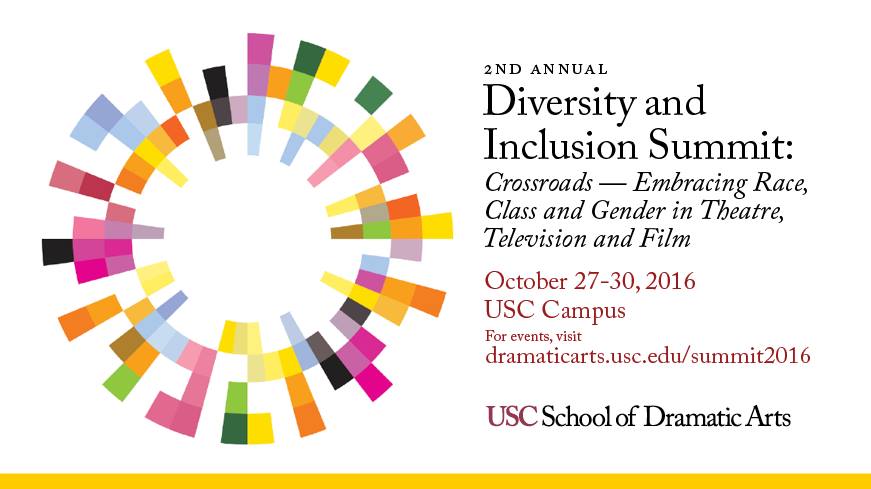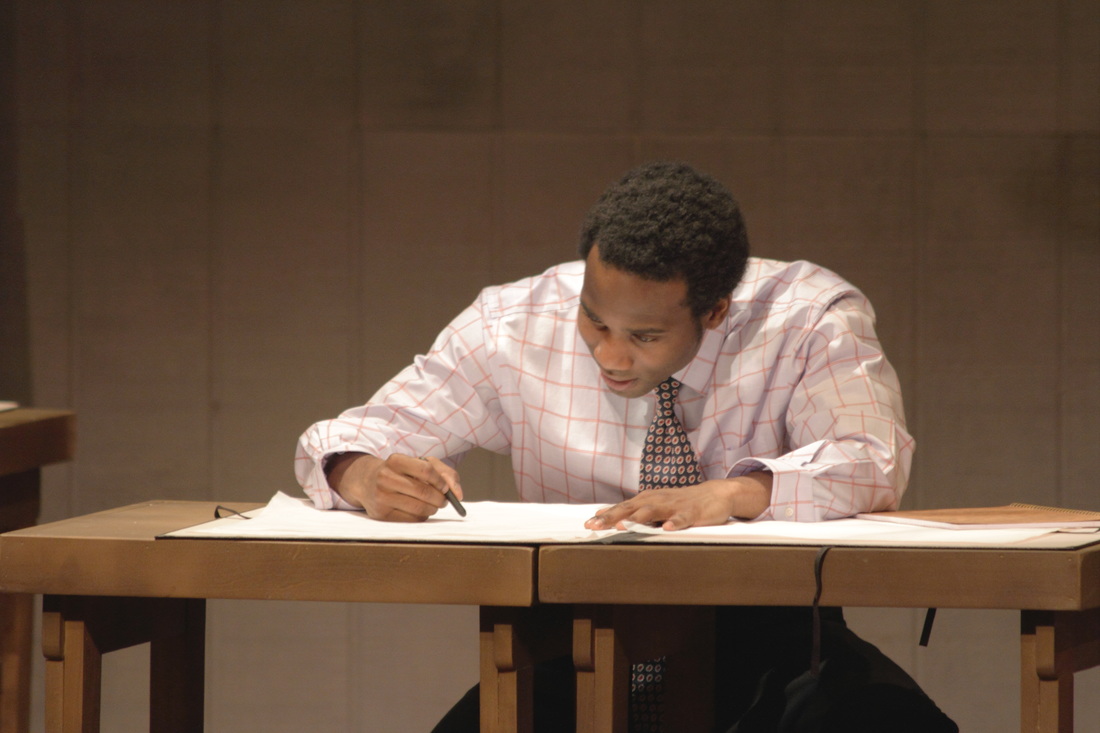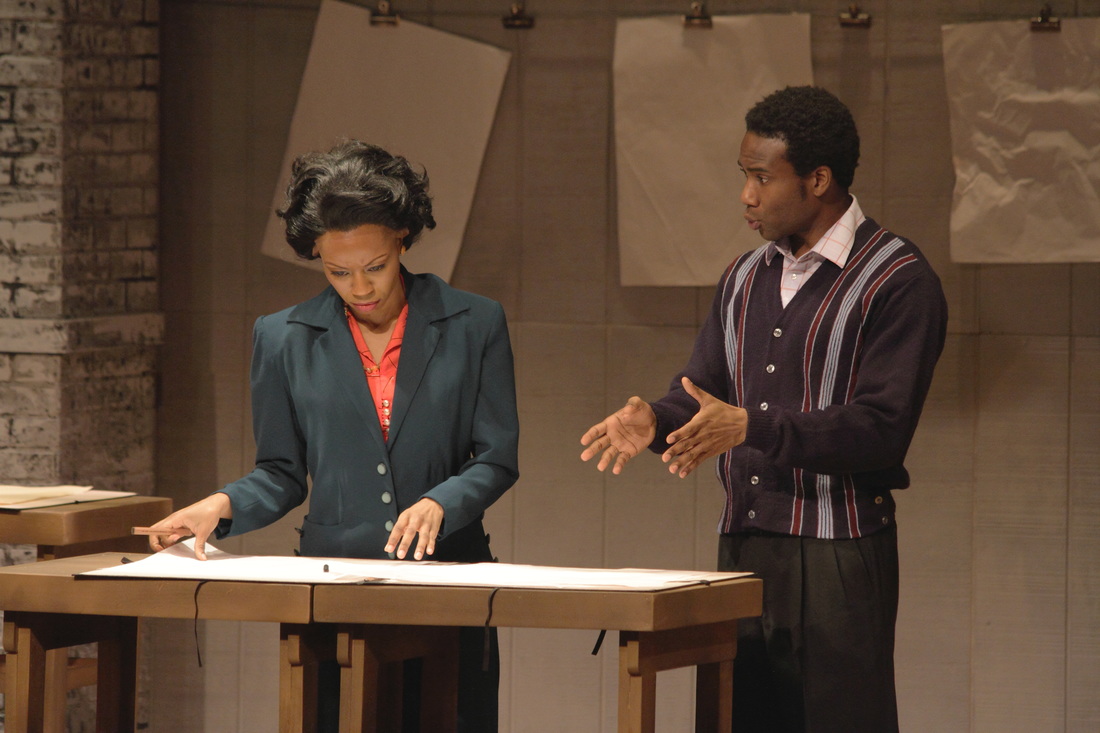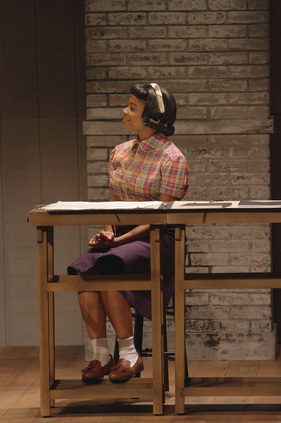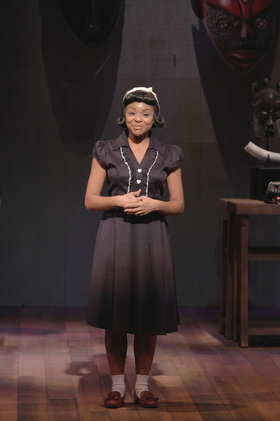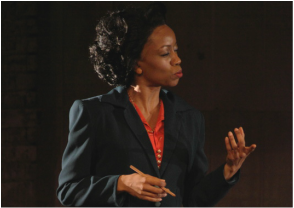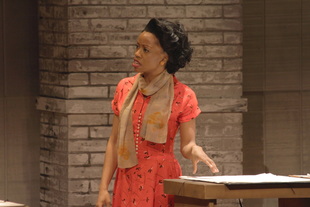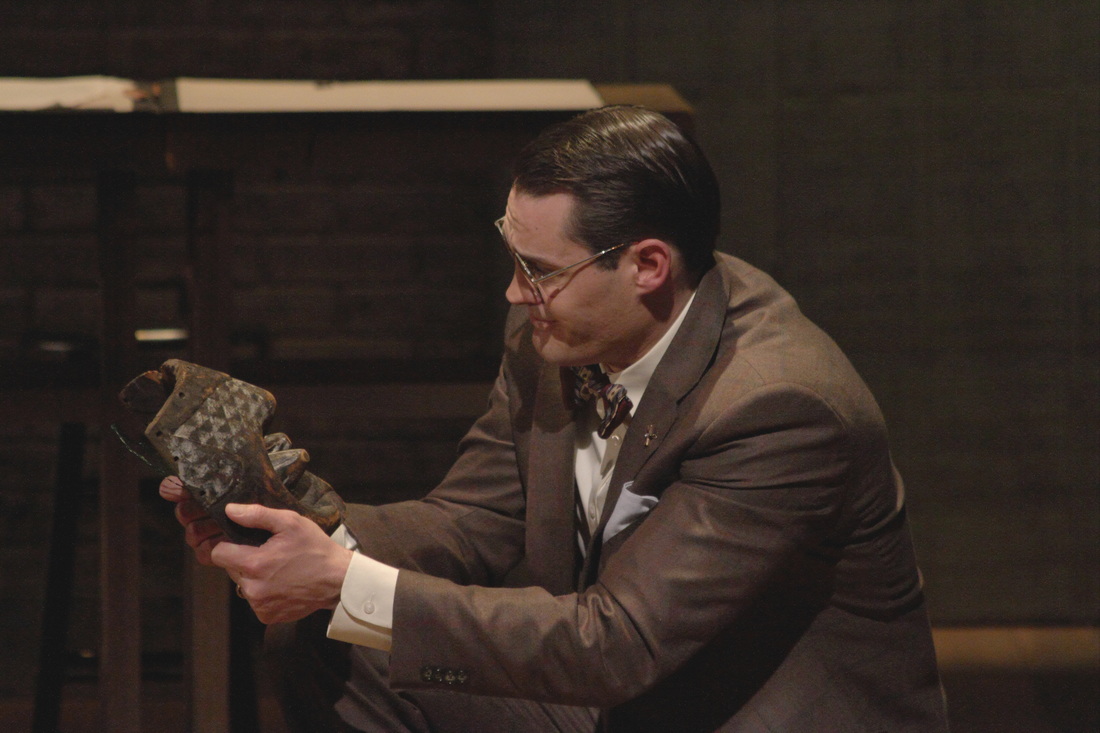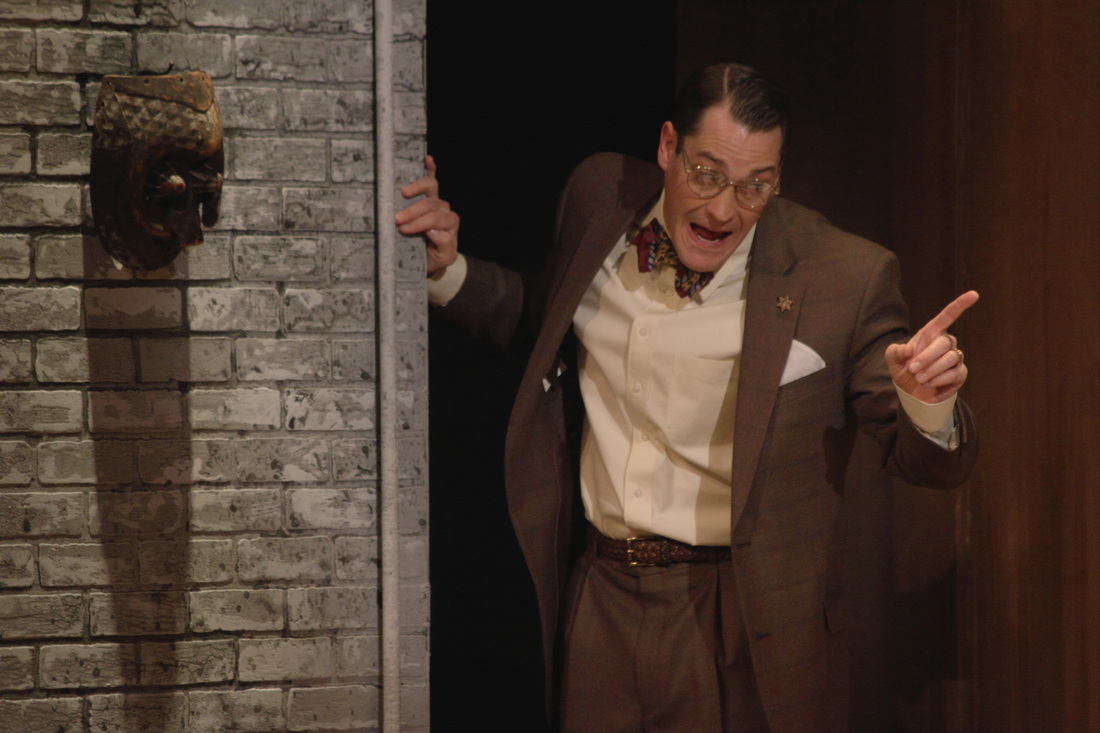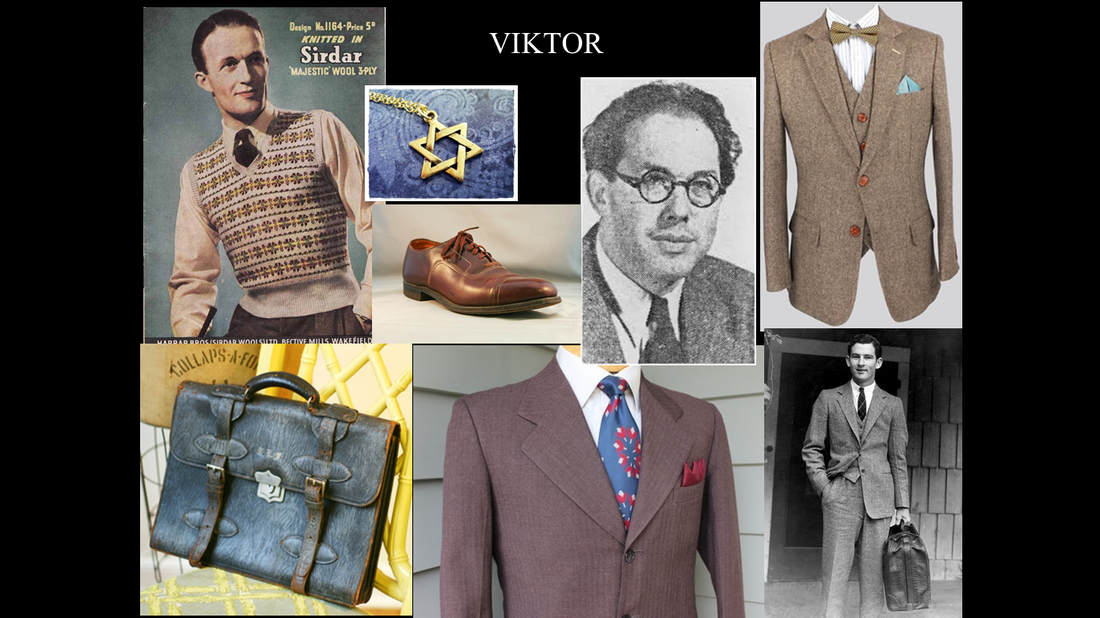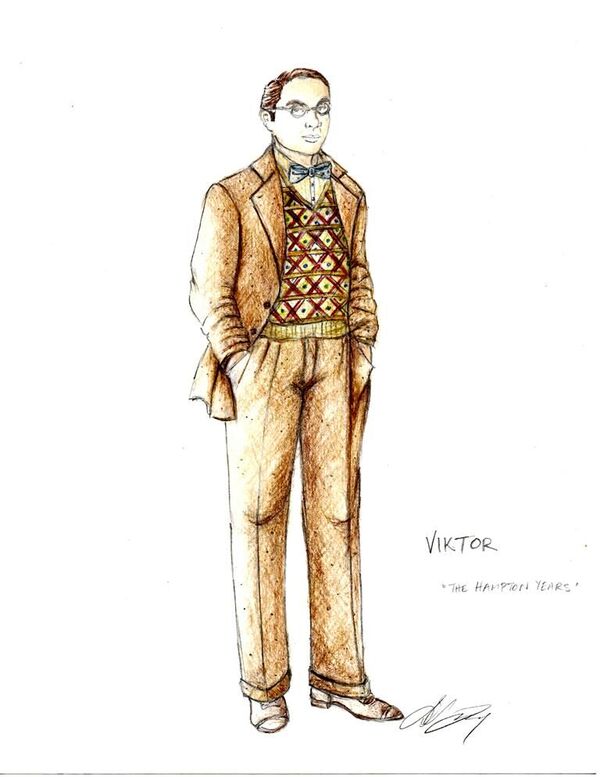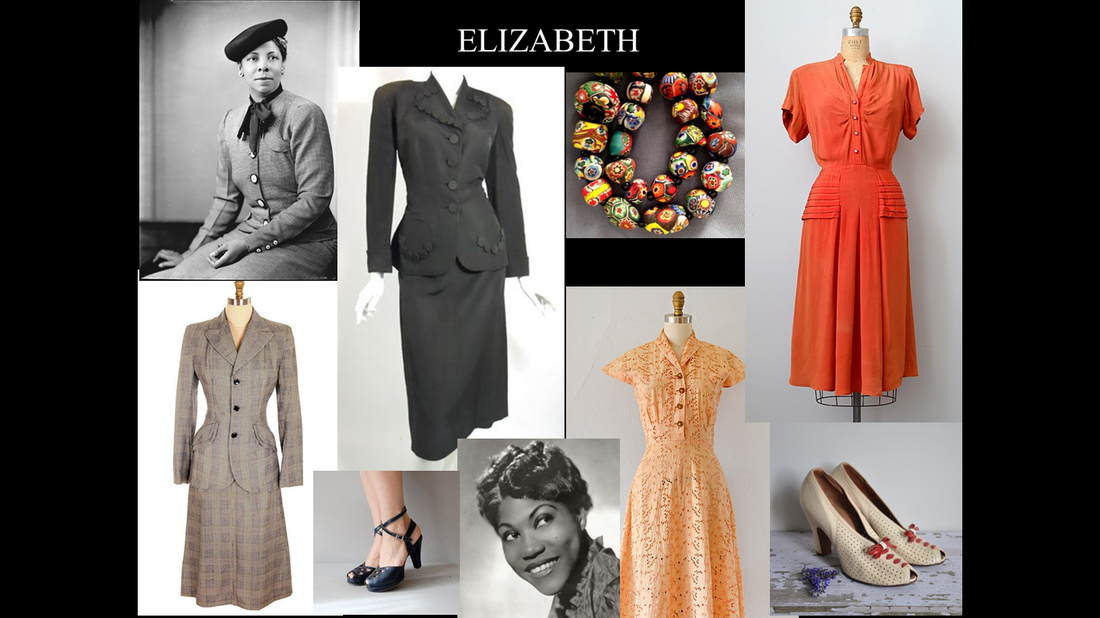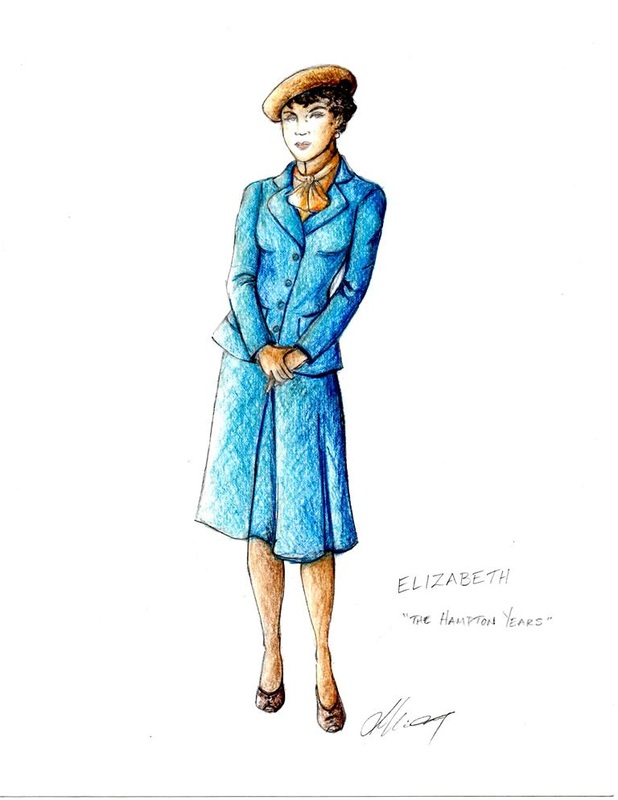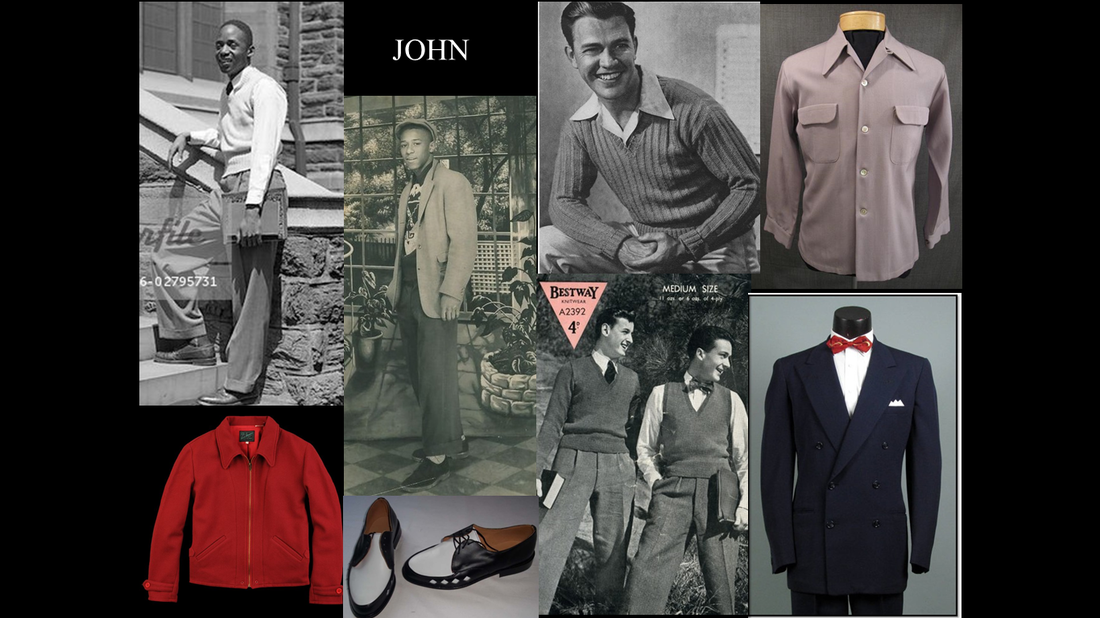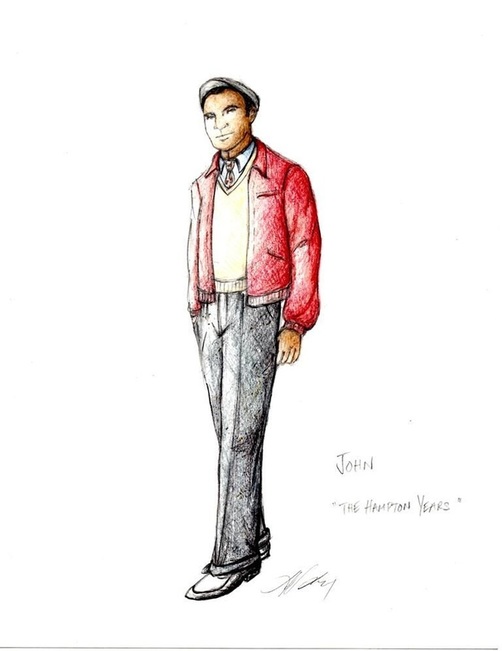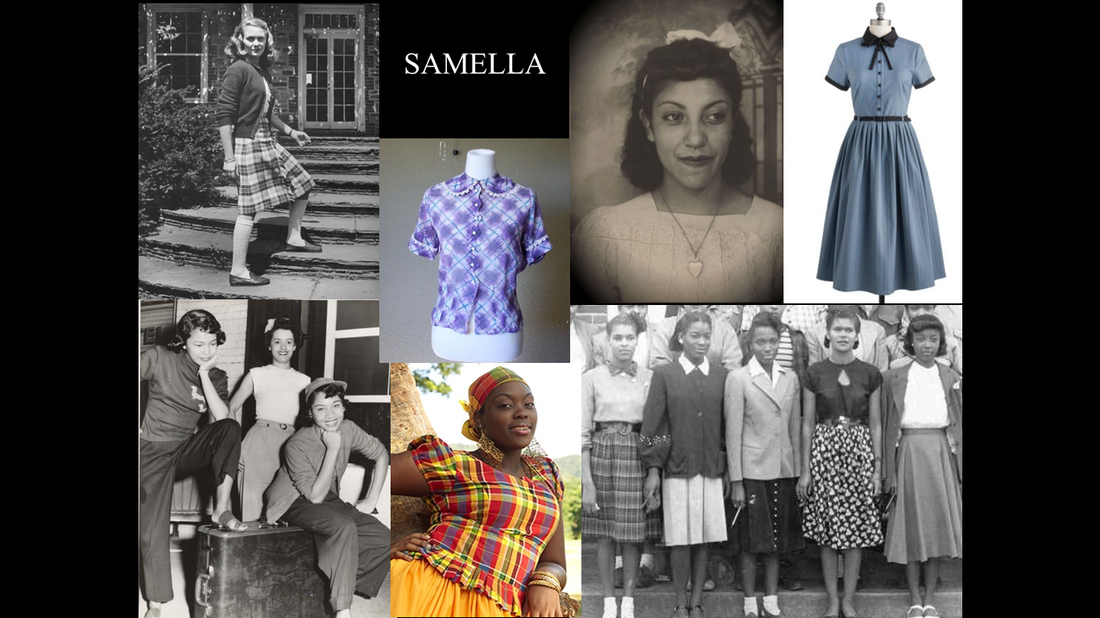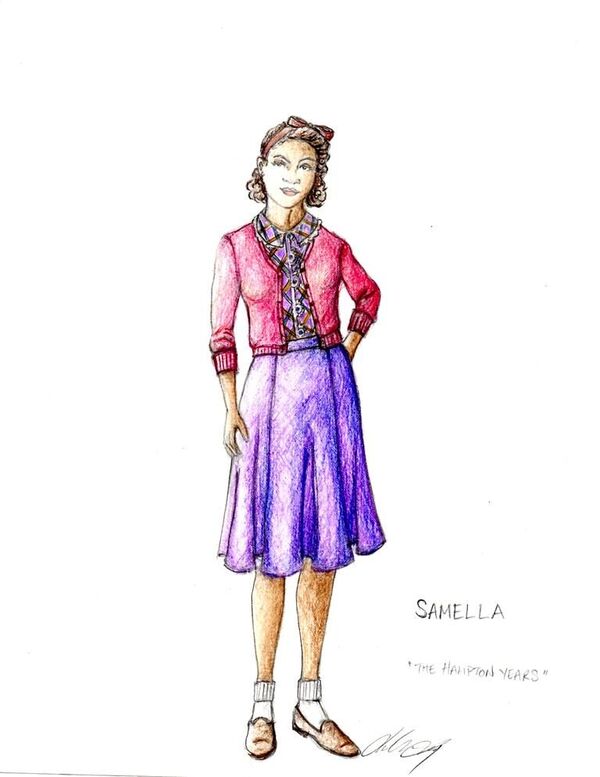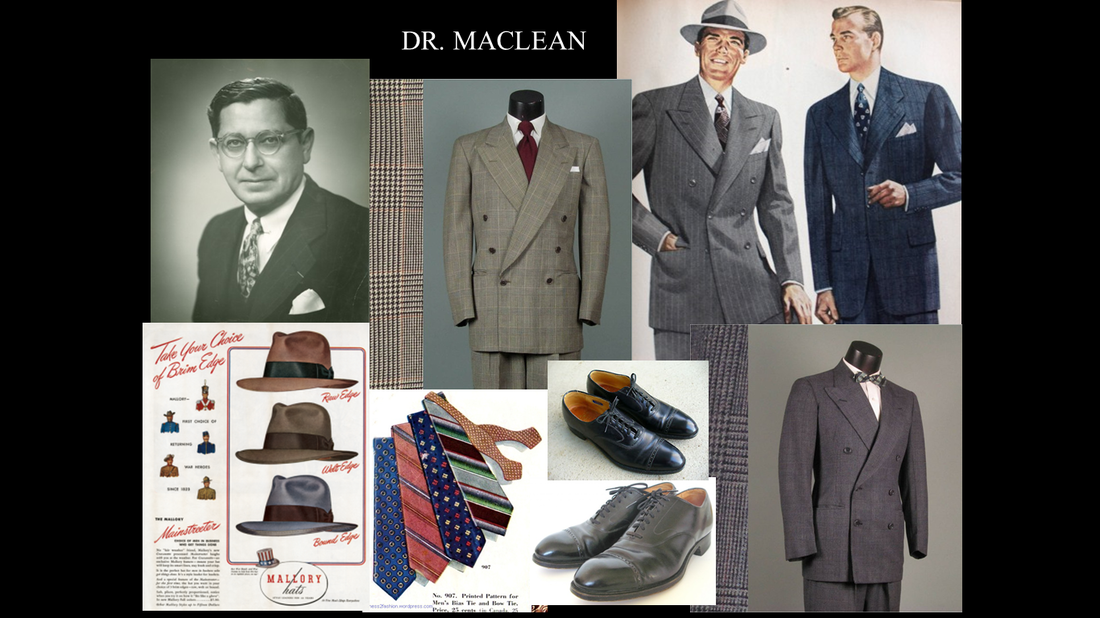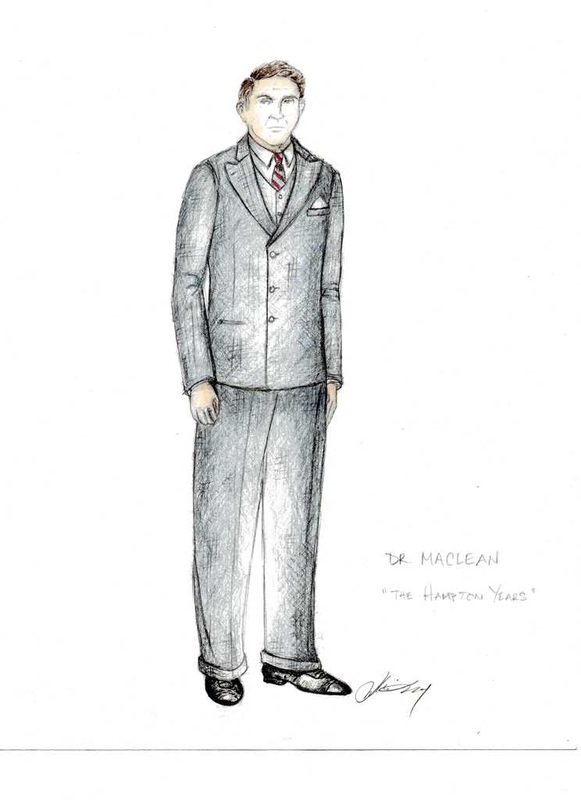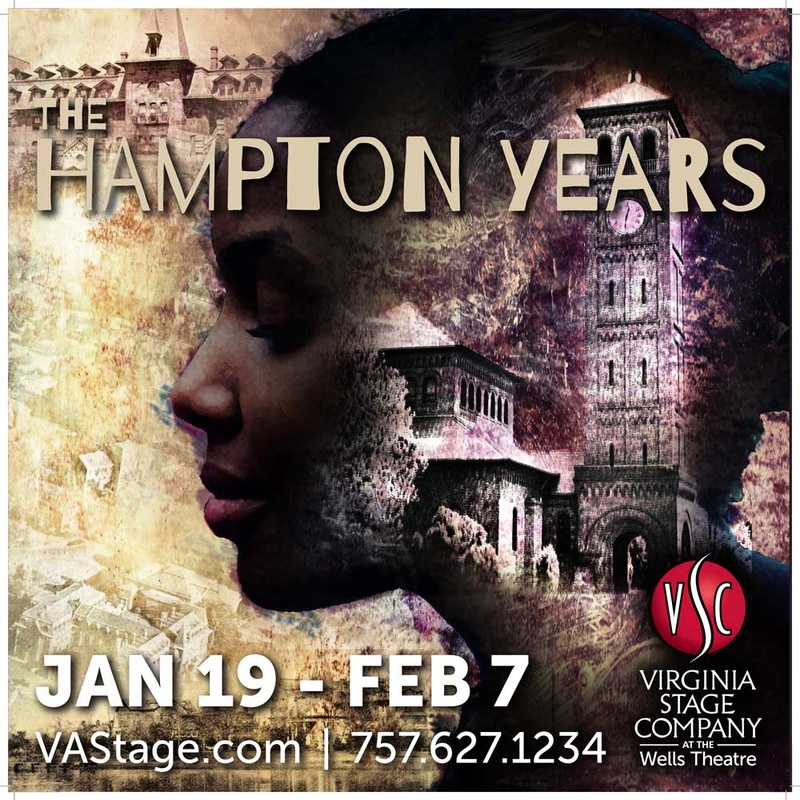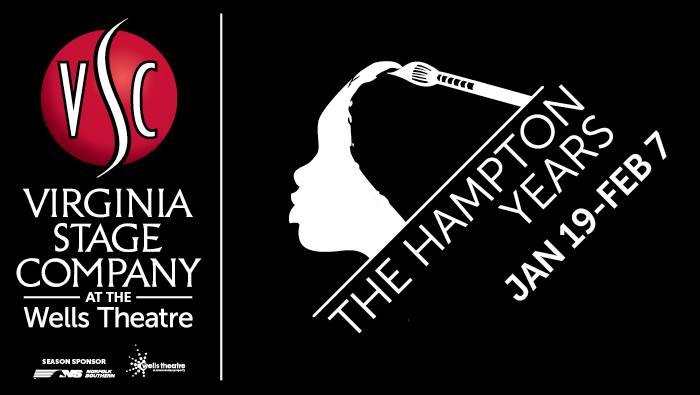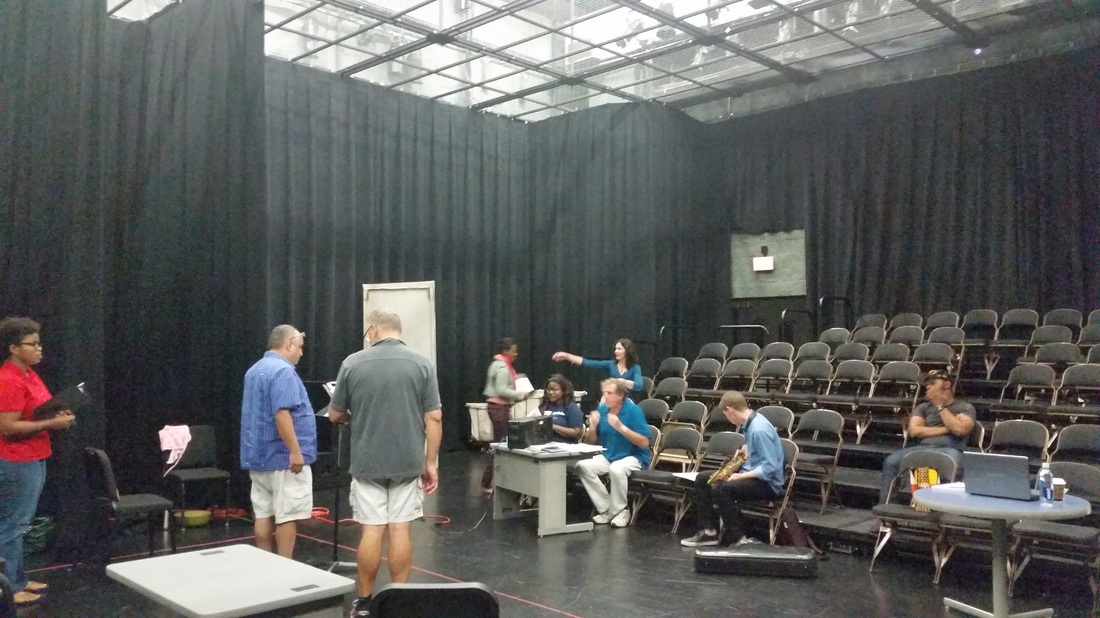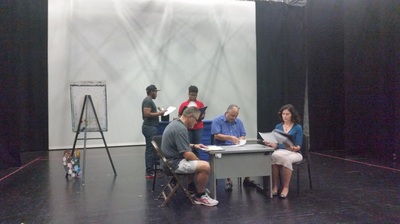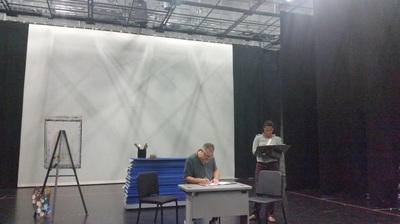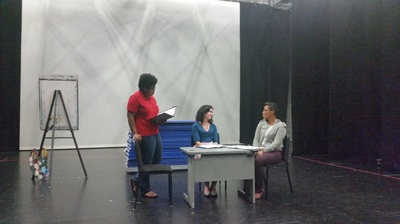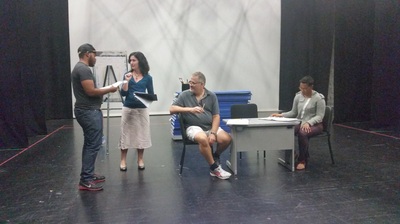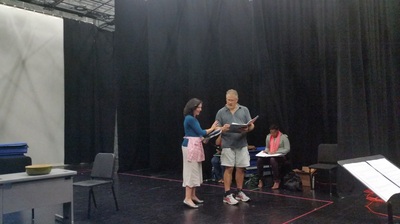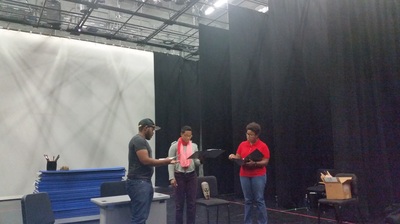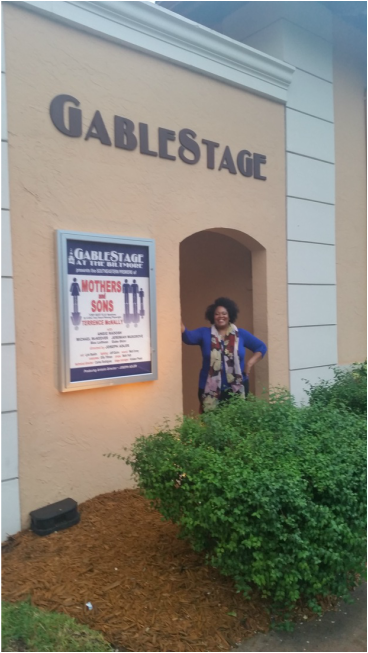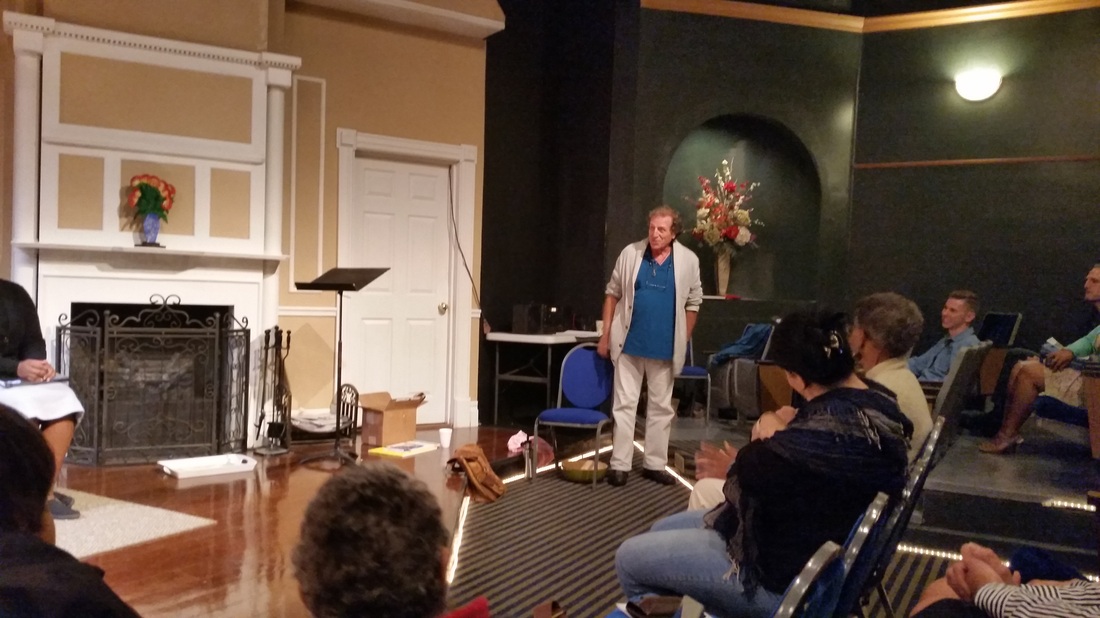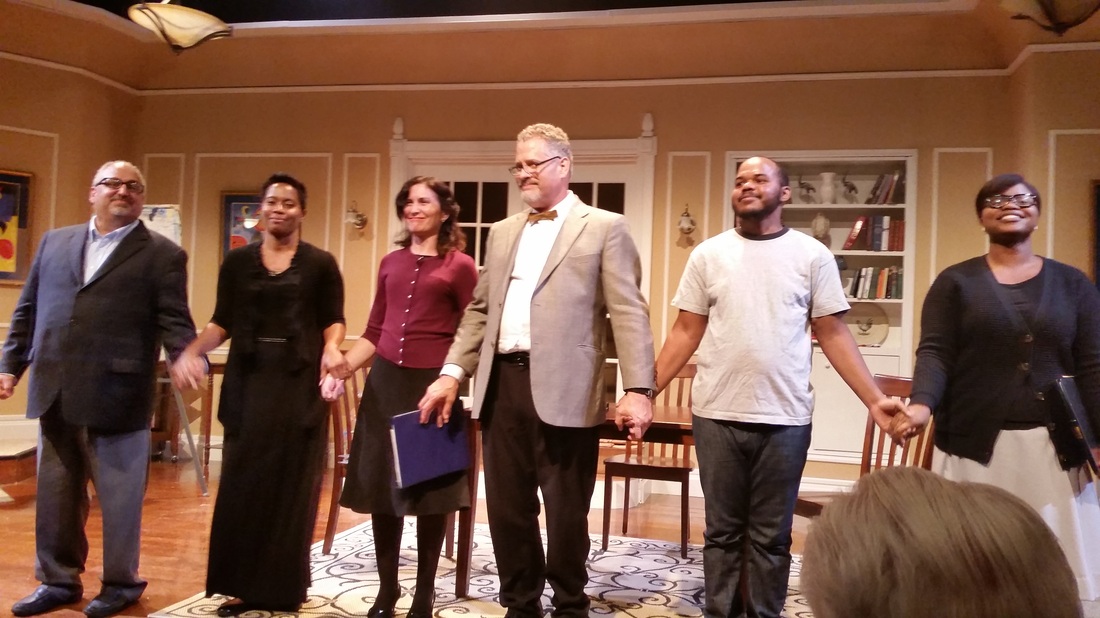|
The USC School of Dramatic Arts announces its second annual Diversity and Inclusion Summit, taking place from Oct. 27-30, 2016. Consisting of a series of interactive workshops, panel discussions and performances, the summit was created to foster community through civic and conscious dialogue around issues of race, gender, culture and identity.
Organized by SDA Associate Professor Anita Dashiell-Sparks who also serves as the School’s Diversity Liaison Officer, these events are a catalyst to spark a series of conversations and strategies to cultivate and sustain an artistic, innovative and inclusive environment that reflects the evolving communities of the 21st century. The theme for 2016 is Crossroads – Embracing Race, Class and Gender in Theatre, Television and Film and will be guest facilitated by Jacqueline E. Lawton, playwright, dramaturg, Equity, Diversity, and Inclusion Advocate. All events are open to the entire USC community. Schedule of Events Thursday, October 27 12:00pm-1:30pm Cultural Appropriation and Cultural Capital Workshop - PED 208 This workshop facilitated by Shafiqua Sahmadi from USC Rossier School of Education will define the difference between celebration and exploitation of cultural customs and traditions. Participants will also examine the various forms of capital we collectively have from our diverse backgrounds that enable us to become allies. RSVP for this event. 1:30pm-3:00pm “Having Our Say” – Theatre for Social Change Workshop - PED 206 Jacqueline E. Lawton will facilitate a workshop exploring how art and theatre provide a creative and critical space for dealing with complex issues of diversity and inclusion. RSVP for this event. 3:00pm–5:00pm Performing Gender Workshop - PED 207 An interactive gender-based, workshop exploring the play SEVEN. One of the seven playwrights, Paula Cizmar, will discuss creative process of documentary theatre based on current events. Jacqueline E. Lawton will lead participants in a gender identity activity. RSVP for this event. Saturday, October 29 10:00am-11:30am Theatre of the Oppressed Workshop - MCC 111 Dr. Brent Blair, Boal scholar-practitioner, will facilitate a workshop in theatre of the oppressed techniques that provoke civic and community engagement surrounding issues of diversity and inclusion. RSVP for this event. 11:30am-1:30pm #Every 28 Hours Project - MCC 111 Join a national collaboration of multicultural theatre artists responding to our Civil Rights Movement. After a community reading of one-minute plays produced by the Oregon Shakespeare Festival, Jacqueline E. Lawton and Oliver Mayer, will moderate discussion including community leaders/educators, and facilitate a creative writing workshop. RSVP for this event. 2:00pm-3:30pm Staging Diversity Panel - MCC 111 Join artistic directors Jon Lawrence Rivera (Playwright’s Arena), Anthony Abatemarco (Skylight Theatre Company), Gregg Daniel (Lower Depth Theatre Ensemble) and Khanisha Foster (Educational Outreach, Center Theatre Group) for a conversation about play selection, inclusive casting, diversifying audiences and educational/community outreach initiatives. RSVP for this event. 3:30pm-5:00pm Equity, Diversity, and Inclusion (EDI) Workshop - MCC 111 Jacqueline E. Lawton, playwright, dramaturg, and Equity, Diversity and Inclusion Advocate, will facilitate a workshop/discussion about how to effectively implement strategies and mission-relevant initiatives to enhance the culture of your school, organization, or business. RSVP for this event. 5:00pm-7:00pm Reading of The Hampton Years - MCC 111 USC students and alumni will present a staged reading of The Hampton Years, written by Jacqueline E. Lawton. This reading will be directed by Anita Dashiell-Sparks, Associate Professor of Theatre Practice and SDA Diversity Liaison. RSVP for this event. Sunday, October 30 10:00am-12:00pm Performing Race and Class - PED 206 Screenings of the groundbreaking series Queen Sugar and Atlanta will illuminate different perspectives about race and class through the genres of drama and comedy. A discussion with Queen Sugar’s Anthony Sparks (writer/producer) and Ayanna Floyd Davis (writer/producer, Empire, Private Practice), moderated by Anita Dashiell-Sparks, will immediately follow the screening. RSVP for this event. 12:00pm–1:00pm Identity Politics and Representation in Mass Media - PED 206 A panel discussion, moderated by David Maquiling from the USC School of Cinematic Arts, examining how multi-cultural actors, writers, producers and directors explore, define, and represent diverse identities and culture on stage and on screen. RSVP for this event.
0 Comments
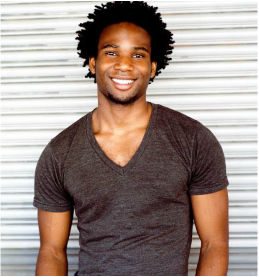 JACQUELINE LAWTON: To begin, why did you decide to get into theater? Was there someone or a particular show that inspired you? W. TRÉ DAVES: I got into theatre at the encouragement of my high school theatre directors. I was a shy, sensitive kid in South Houston. Although I was a pretty strong athlete, I was pretty realistic about the fact that I wasn't elite. I also understood that sports clubs weren't my true community. I wanted to be funky and hang around girls all day. And if necessary, I wanted to be able to cry in front of friends without ridicule. JL: Set in Hampton, Virginia in the 1940s, THE HAMPTON YEARS examines the impact of World War II on Jewish immigrants living in the United States and their role in shaping the lives and careers of African American students in the segregated south.Why do you feel this play is relevant to today’s audiences? TD: Most importantly, I think that if you were to take a national poll, most folks would not be able to identify who John T. Biggers or the other characters in the play are. That is astounding and totally unacceptable. The tradition at Hampton Institute, later university, deserves to be honored by having its story told. JL: THE HAMPTON YEAR also investigates the various ways in which racism and bigotry negatively impact the arts, academia and military. Where do you feel we are in terms of race relations in the U.S.? TD: I'd hate to preach to the choir so I submit this: I sincerely doubt that an enlightened white artist, lawyer, or enlisted service man or woman would freely switch their treatment with that of a person of color with the same background, experience, or education. I'll leave it there. JL: Which character are you playing? What, if anything, do you have in common with this character’s passions, values, intentions or belief system? TD: I play John Biggers. We're astoundingly similar, I think, without ever having had the pleasure to meet him before his passing. I can only imagine that an artist of his pedigree must be sensitive and as I stated above, I am too. I am a fan of his work. I'm inspired by his acceptance of the matriarchy after his initial trip to Africa and I find myself moving from the patriarchy and closer to the former. JL: What do you hope audiences walk away thinking about after experiencing this play? TD: I fundamentally believe that we should entertain. If a piece doesn't entertain then you cannot hope to achieve any of your practical goals. I would hope that the audience gets a clear story that challenges their understanding of the topic while allowing them to draw their own conclusions. And the goal is that they will have a few laughs and tears along the way. And of course, an appreciation of the glorious artwork that these artists contributed. JL: What’s next for you as an actor? Where can we follow your work? TD: I'll be running back to NYC to audition. If you watch NBC's Shades of Blue, you may see me get gangsta on an episode of that soon. My website, wtredavis.com, will be back on line soon. I'm very fortunate to need to do a lot of updates on it. :) Tré Davis is thrilled to make his VSC debut! He has been seen off-Broadway in Glenburn 12 WP (59e59 Summer Shorts), Hamlet (The Public), Zooman and the Sign (Signature Theater Co.), and Airborne (Ensemble Studio Theatre). NY credits include Carnaval (National Black Theatre, Audelco Award), Paradox of the Urban Cliché (Poetic Theatre, written by MuMs), And Miles To Go (Partial Comfort), and Look Upon Our Lowliness (The Movement Theatre Co.). He's been seen regionally in The People Before the Park (Premiere Stages), Henry VI (Shakespeare Theatre NJ), Julius Caesar (Shakespeare Fest St. Louis), and Pirandello's Henry IV (St. Louis Rep). Television credits include Shades of Blue (NBC). Tré is a proud graduate of Webster Conservatory. A big, giant thank you to Chris and the entire VSC family. For H-C, Robyn, Richard, and Sarah!
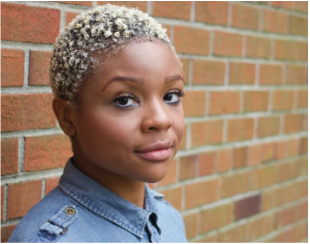 JACQUELINE LAWTON: To begin, why did you decide to get into theater? Was there someone or a particular show that inspired you? Meredith Noel: I have wanted to be an actress for as long as I knew what one was. I remember talking to my mother when I was five years old and she asked me what I wanted to be when I grew up and I told her, “I want to be a Ballerina-Motorcycle-Queen!” and she said, “I don’t think that’s a thing” and I said, “Well then I want to be in movies” JL: Set in Hampton, Virginia in the 1940s, THE HAMPTON YEARS examines the impact of World War II on Jewish immigrants living in the United States and their role in shaping the lives and careers of African American students in the segregated south.Why do you feel this play is relevant to today’s audiences? MN: At the center of the play are character’s struggling to find their place in society, to find their own voice as artists, and to relate to each other as human beings and not as stereotypes. It’s a very relevant story as the struggles and triumphs of the characters are timeless and relatable to people in any generation and of any age. JL: THE HAMPTON YEAR also investigates the various ways in which racism and bigotry negatively impact the arts, academia and military. Where do you feel we are in terms of race relations in the U.S.? MN: As of late, it would seem that we did not pass go nor did we collect our $200 in terms of race relations in this country. While it may seem that way, it isn’t true. The same struggles we’re having now are the same struggles we’ve always had as a nation. Except now, we have the information readily available to us at anytime and its right in the palm of our hand. We cannot turn a blind eye anymore or pretend these injustices aren’t happening. We are all now faced with the truth, which makes us all accountable. We have to do our best to not be apart of the problem. We have to be the ones who facilitate solutions and change. JL: Which character are you playing? What, if anything, do you have in common with this character’s passions, values, intentions or belief system? MN: I am playing Samella Sanders, now Lewis, in the show. I have much in common with Samella. She is a young woman who, throughout the play, goes on this journey of self discovery and is delivered from the words and prejudices others have placed on her to find who she is and her own voice as an artist. While being an actress is the only thing I ever really saw myself doing I allowed my family, much like Samella allowed Professors and scholars, to persuade me that I couldn’t and shouldn’t do that. It took the support of people who believed in my talents and for me to have faith in myself to finally admit and pursue my passion. Samella had Viktor and Elizabeth in the world of the play to help her realize her potential and I had Dr. Clarence Murray, Brando Lindsy and Anthony Stockard to help me realize mine. JL: What do you hope audiences walk away thinking about after experiencing this play? MN: I hope audiences realize the rich culture and history of the Tidewater region, I hope they walk away ready to have honest and productive dialogue about art, relating to each other with understanding and patience, and about ways to affect positive change in the city around them and I hope they research these brilliant characters more to find out about who they became and the phenomenal work that they have done. JL: What’s next for you as an actor? Where can we follow your work? MN: Well I am a student actor. I am a senior at Norfolk State University so you can always visit our website, nsutheatre.com, to see what we’re up to next. Some coming attractions: will be doing an original piece which is a tribute for Martin Luther King, Jr. and we will also be holding a Sonnet Salute for the 400th anniversary of Shakespeare’s death. Also we will be having a one act play festival where each student in our directing class will be responsible for casting and directing their own one act play. In addition to that I have professional auditions coming up in March for SETC. If you care to follow me on social media my Instgram handle is meredithnoel, my Facebook is Meredith Noel Johnson and my Snapchat is themeredithnoel. Meredith Noël Johnson is a native of Baltimore, Maryland and the youngest of five siblings. She is a senior at Norfolk State University studying English with a concentration in Theatre. At Norfolk State, she is a member of the NSU Theatre Company and has performed in such shows as: A Raisin in the Sun as Ruth Younger, For Colored Girls as Lady in Red, and Lady Day at Emerson's Bar and Grill as Billie Holiday. She is very excited to be performing in her first production in The Wells Theatre with the Virginia Stage Company.
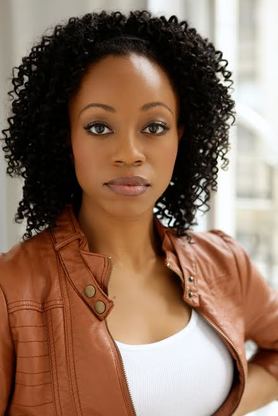 JACQUELINE LAWTON: To begin, why did you decide to get into theater? Was there someone or a particular show that inspired you? CHANDRA THOMAS: I was first introduced to theatre at a very young age as my mom took me to my first Broadway production when I was maybe 4 or 5 years old. But it wasn't until a middle-school classmate "dared" me to try out for the seventh grade musical production of "The Emperor's New Clothes" that I discovered the thrill and excitement of being part of a play. This all laid the foundation for when I saw the original production of "Rent" and became a fully certified "Renthead"-- yes, the ones who slept outside of the theatre to be first in line for front row tickets [laughs]. The show sparked my "I am deciding to get into theatre" turning point. Despite having seen and been a part of quite a bit of theatre by that early age, it was the first time I saw people who looked and talked and acted like the people I knew and grew up with and faced problems that seemed visceral and contemporary to me. It was the show that gave me the gust to say aloud that i, my voice, and the stories of people who I cherish belong on the stage too. JL: Set in Hampton, Virginia in the 1940s, THE HAMPTON YEARS examines the impact of World War II on Jewish immigrants living in the United States and their role in shaping the lives and careers of African American students in the segregated south. Why do you feel this play is relevant to today’s audiences? CT: So many of the themes that you reference in that description and that resonate in the entire play are so alive and at the forefront of "right now": people being displaced because of violent strife in their homeland, the necessity of collaboration in speaking out against unjust systems, the vital role of educational institutions in not only preparing young people to enter the "real" world, but to empower them to define it. JL: THE HAMPTON YEAR also investigates the various ways in which racism and bigotry negatively impact the arts, academia and military. Where do you feel we are in terms of race relations in the U.S.? CT: I will respond to this question with two quotes from the play-- My character, Elizabeth Catlett: "One day... our work will transcend race. People, who don't looks like us, who disregard us, will be able to see themselves in our art." And from John Biggers, one of her young art students of African descent: "I mean no disrespect, but how long are we supposed to be okay with better than before?... some of us can't afford to wait." JL: Which character are you playing? What, if anything, do you have in common with this character’s passions, values, intentions or belief system? CT: I play Elizabeth Catlett. There are several points of meeting between Elizabeth and me. The one that's really been playing in my mind of late is our shared belief about how resistance and political movement must come in MANY different forms. JL: What do you hope audiences walk away thinking about after experiencing this play? CT: I hope they walk away with the vibration of just how "right now" so many of the questions and problems in this play are... JL: What’s next for you as an actor? Where can we follow your work? CT: It's very easy to follow my work via my website: www.chandrathomas.com. You can also find me on Twitter (@truechandra) and Facebook (www.facebook.com/chandrathomas). Originally from New York, chandra thomas works in theatre, film, television, and new media. Theatre performances include contemporary and classic works Off-Broadway, in New York, and regionally at New York Theatre Workshop, Public Theater, Tectonic Theater Project, Barrow Group Theatre, PS 122, Guthrie Theater, CenterStage, Denver Theater Center, Alliance Theatre, and others. Film, television, and new media credits include Labor Day (with Kate Winslet), Sweet Lorraine (with Tatum O'Neal), Law & Order: SVU, The Good Wife, Too Big to Fail, and Complete Sentences?, among others. She is also a writer and arts educator, including co-founding viBe Theater Experience, an award-winning, arts non-profit empowering teenage girls in New York City. More at www.chandrathomas.com and @truechandra on Twitter.
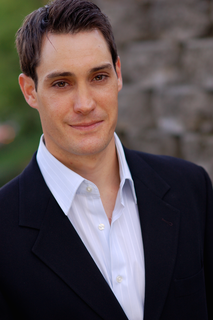 JACQUELINE LAWTON: To begin, why did you decide to get into theater? Was there someone or a particular show that inspired you? ADAM GREER: I got into theater more or less by accident... Literally. I played soccer up until high school but was unable to tryout for the team my freshman year because I had torn a tendon in my ankle. my brother was in the theater department an encouraged my to audition for the all school musical that year. I had been in the choir in middle school and thought I'd give it a shot. I remember, vividly, making my first exit after opening night: the adrenaline rush, the exhilaration was overpowering. I was offered a small role in the next play (William Saroyan's The Time of your Life) and never looked back. It was our high school drama teacher, Mike Harrison, who made all the difference. He instilled in all his students a reverence for the theater, a passion, a work ethic and drive that I've tried to carry with me all my life. JL: Set in Hampton, Virginia in the 1940s, THE HAMPTON YEARS examines the impact of World War II on Jewish immigrants living in the United States and their role in shaping the lives and careers of African American students in the segregated south.Why do you feel this play is relevant to today’s audiences? AG: First of all, the desire to create art, and the ability of art to question, reflect, or even change society is an universal and timeless necessity, it seems for humankind. we still struggle with bigotry and prejudice, and it is the duty of the serious artist to fight these battles. For me, being an artist is largely about finding and celebrating the universality of the human experience. If, as an actor, I can use my imagination, my personal history, and experience to "become" as much as is possible someone else, I can begin to understand another person's (even a fictitious person's) longings, struggles and point of view. In drama school, we spent several months our first year doing a text analysis project, where we worked through a rehearsal process and character study of a play that we would never perform. One of the plays was August Wilson's Fences. For me to work on the character of Troy was an unbelievable and incredibly challenging prospect. This is a role I can never play. It would be insulting and infuriating to see in a staged production and rightly so. While I learned that the experience of a young black man from that period is something I could never, ever, ever completely understand or encompass, just putting myself, to the best of my imaginative and artistic abilities, I hope, bridges the gaps in some ways. I've gone a bit afield. This play is relevant now because obviously the struggle to explode the barriers of race and culture that separate and divide us is ongoing. The experience of art and creativity may be universal, but the setting of this play (1940s Virginia) provides the filter of an exceptional crucible of pressures which shaped the world of art and creativity: The looming savage inhumanity of Nazis and the stark reality that here in the US, systemic racism and institutionalized segregation were rampant and ingrained. We see, I hope, not merely how things were, and certainly not how far we've come, but rather how much work we still have to do. JL: THE HAMPTON YEARS also investigates the various ways in which racism and bigotry negatively impact the arts, academia and military. Where do you feel we are in terms of race relations in the U.S.? AG: As I just stated, still so far to go... I feel we are at a volatile and crucial boiling point. A new and modern movement seems to be coalescing. As more and more police brutalities are brought to light and documented, the issues of race and violence can no longer be denied, or ignored by a privileged and unimpacted (and even oblivious or ignorant) majority. There is a sense of welling anger, which is as troubling as it is necessary. I feel that issues are taking a national spotlight and it is less possible to be neutral, and that people who were never in the conversation or struggle are taking part, and that will, I hope, be a vehicle for constructive change... At the same time it feels like we are on the verge of an eruption or upheaval which will be necessary but tumultuous. JL: Which character are you playing? What, if anything, do you have in common with this character’s passions, values, intentions or belief system? AG: I am privileged to be portraying Victor Lowenfeld. He is a driven and passionate scholar, teacher, and artist in his own right. His real life body of work is documented, so I will skip that here. I can say I admire his unrelenting mission to forge a pathway for his students as pioneering artists and representatives of their culture and history. He has suffered. He lost all but his immediate family to the Nazi scourge, and flees a society rife with horrors and the worst in humanity, only to arrive in a professed free society rife with resonances of the same institutionalized hatred and systematic oppression. Really I am using his intrepid resilience and willingness to start over, his overwhelming passion to begin anew and never quit as a personal inspiration. This is this first play I have been able to do in almost three years. As a father of three, my artistic career has had to take a back seat to my most important role: that of a grateful and proud parent. Viktor's seminal book, Creative and Mental Growth, which has been a standard for decades for art teachers and students, concerns the way children progress artistically and how their art reflects their psychological development. Spending the last eight years watching my childrem blossom and grow now feels now like extensive research into Viktor's mind. This year, as my kids have all begun their schooling, I came to the realization that after several years of dedicated fatherhood, I now have some time to re-dedicate to my career as an actor. I am in the process of rekindling my creative spark and the single minded determination, passion, and relentlessness that my character brings to his art and classroom serendipitously both mirrors and fuels my own JL:What do you hope audiences walk away thinking about after experiencing this play? AG: I don't want to manage the audiences thoughts. Art is inherently interpretive. I hope that they walk away not only thinking, but discussing their thoughts. I hope this play creates dialogue. I hope that the ideas of race, history, creativity, the process of creation, and whatever they may bring to the experience from their own lives collide, mingle, and become change, no matter how slight. JL: What’s next for you as an actor? Where can we follow your work? AG: I honestly have no idea. After this time away I am going to hug my kids in a desperate way they won't understand. I am going to take my wife to the Bahamas (no kids!). And I am going to try to keep the flame of inspiration I feel working on this rich and complex play burning bright in my artistic soul. Adam Greer has appeared on Broadway in Mary Stuart and Cymbeline (Lincoln Center). Other New York productions include Look Back in Anger at the Roundabout, Hamlet and Cymbeline at the Public Theatre/NYSF, What you get/Expect at NY Theater Workshop, and Straight Jacket, which premiered at Playhouse 91 and was subsequently made into a feature film in which Mr.Greer reprised his leading role. Regional highlights include Cabaret (Engeman), I Witness (MarkTaper), Rough Crossing (Old Globe), The Triumph of Love (Seattle Rep, Longwharf), Fly (Crossroads), It Pays to Advertise (Yale Rep), Agamemnon (Getty Villa), A Midsummer Night's Dream (PittsburghPublic), and several productions at the Guthrie Theatre including Julius Caesar, The Invention of Love, and Death of a Salesman (which traveled to the Gaiety Theatre as part of the Dublin Theater Festival). He performed at the Kennedy Center in An Evening of Romeo and Juliet with the National Symphony Orchestra, and other film and TV credits include Winter of Frozen Dreams, Law & Order SVU, Guiding Light, and As the World Turns. Mr. Greer is a graduate of the Juilliard School.
Recently, I had the opportunity to connect with costume designer LeVonne Lindsay about her process and work on Virginia Stage Company's upcoming production of The Hampton Years. She spoke candidly about what inspired her to work in theatre, her creative process, and generously offers advice for emerging designers. Additionally, she was kind enough to share her research and renderings for The Hampton Years. Please enjoy this interview and her beautiful work. Interview with LeVonne Lindsay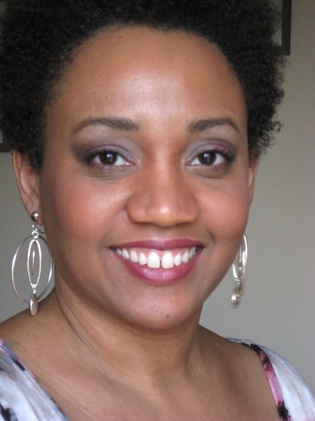 Jacqueline Lawton: To begin, tell me how long you have been a costume designer. What inspired to work in the theatre? LeVonne Lindsay: Technically, I began my career as a costume designer shortly after I graduated from Philadelphia University in 1992 with a degree in Fashion Design. I became interested in getting involved with theater after I took an elective class in performing arts and I had been volunteering and a community theater during my summers. The transition from stage crew to costumer didn't take me long once they discovered I knew how to sew. JL: What excited you about designing costumes for THE HAMPTON YEARS at Virginia Stage Company? LL: I took a break from costume designing for the past few years once I began my position as shop manager at The University of the Arts. I simply didn't have the free time or the project didn't interest me enough to make the effort. The Hampton Years came at the perfect time and we had just been discussing finding the right opportunity to work together. 1940s Americana falls right into my wheelhouse for costuming, particularly when it comes to Black History. Everything about this play felt so serendipitous, I could not resist. JL: How did you prepare for the costume designs for THE HAMPTON YEARS? How much research goes into it before you even sketch your first drawing? LL: First I refresh my basic knowledge of costume history for the time period. In this case, I knew I was dealing with non-fictional characters so I felt their costumes should try to ring true to their image as well. I also have to break down the script to create a costume plot and account for all the changes and how they could best be handled. For instance, I chose to change Samella from a skirt into a pair of culottes rather than slacks or jeans so she could get in and out of them without taking off her shoes. JL: Finally, what advice would you give a young person interested in becoming a costume designer? LL: Costume designing is not a job for anyone who gets easily discouraged. Costume designer are often faced with situations that make our job seem like an afterthought because clothing is so personal and readily available. Creating and producing costumes that fit well, function correctly and enhance the production, no matter what size the cast, is always a lot harder than it looks. The more skills that you acquire as a designer and a technician increases your chances of success in an extremely competitive field. If you are serious about working as a designer, you should choose the best grad school you can afford that will provide you the most connections. Once you've established yourself as a reputable designer, don't sell yourself short. You have to love what you do so much that you would do it for free while commanding enough respect to be paid what your contribution is actually worth. About LeVonne LindsayLeVonne Lindsay- B.S. in fashion design from Philadelphia University and M.F.A in costume design from University of Maryland, College Park. Teaching credits include: The University of the Arts Philadelphia, Stevenson University, James Madison University and Valdosta State University. Design credits include Arena Stage: Yellowman (Allen Lee Hughes Fellow, 2001-2003); 1st Stage Theatre- Almost Maine, An Italian American Reconciliation; Everyman Theatre: Crimes of the Heart, Topdog/Underdog, A Raisin in the Sun, The Brothers Size, Proof; Theatre of the 1st Amendment: 24-7-365 (Premier); African Continuum Theatre: Blues for an Alabama Sky, From the Mississippi Delta, Joe Turner’s Come and Gone, Blood Knot (Resident Designer 2002-2004); Theater Alliance: Black Nativity (2011); Hangar Theatre, NY- Gem of the Ocean Kennedy Center Theatre for Young Audiences- Jason Invisible, Locomotion, Handspeak, Color Me Dark; Imagination Stage: Mufaro’s Beautiful Daughters; Metrostage: Sidney Bechet Killed a Man, Three Sistahs, Sea Marks; University of Maryland Opera Studio: Tales of Hoffman/Clara. Related Experience: Stages St. Louis- Assistant Shop Manager; Washington National Opera- Assistant Costume Coordinator; Arena Stage- First Hand, Design Assistant; Perry-Mansfield Performing Arts School and Camp- Costume Shop Manager, Cutter/Draper; Shakespeare Theater Company- Publicity Costume Stylist; Wolftrap Opera Company- Assistant Shop Manager. Costume Research and Design by LeVonne LindsayThe Hampton Years
by Jacqueline E. Lawton Directed by Chris Hanna Dramaturgy by Jules Odendahl-James January 19 - February 7, 2016 The Wells Theatre, Virginia Stage Company The next addition to the Company’s American Soil Series, The Hampton Years , is a true story of a Jewish WWII refugee mentoring students from Hampton University, whose passion, determination and talents introduced African American Art to the Nation. The American Soil series is plays produced by VSC, focused on bringing new plays with local relevance to Hampton Roads. Click here to learn more and purchase tickets. 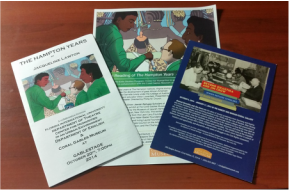 Last night's reading of THE HAMPTON YEARS was such a wonderful experience. I learned so much from this collaboration with FIU Theatre, GableStage, and the Coral Gables Museum. It was a rainy day and I was worried that we wouldn't have much an audience. Well, much to my surprise and delight,I worried for nothing! We had a rather large, attentive, and enthusiastic audience. As you know, the play examines the relationship between Austrian Jewish professor Vikton Lowefeld and his students, John Biggers and Samella Lewis. What made this cast so special was that it was comprised of students and professors from FIU Theatre and New World School of the Arts. Owing to this, the conversations that we had about art and education was that much more relevant and charged. The post show discussion was also lively and engaging. A great many audiences members had attended the Beyond Swatiska and Jim Crow exhibit and were thrilled to see the themes come to life so intimately and urgently in a play. I opened the conversation by speaking about the process of new play development from Theater J's Locally Grown Festival to the world premiere production to the continued development taking place with Virginia Stage Company. In response to a question about the difficulty of writing this play, I shared that it most certainly had to do with the balancing the history and the drama. As interesting as history can be, it doesn't always make for compelling drama. With each draft, I'm working to activate the history, fuel the characters intention to increase the stakes. It's an exciting process to be sure! One student shared his appreciation for the play's close examination of individuals living in exile and another student found the conversation around race and identity in art to be deeply reflective her own experience. Throughout the weekend, I managed to do one rewrite on Sunday evening and furiously took notes throughout the reading. Now that I'm home, I'm going to incorporate these edits and send this new draft over to VSC. I'll certainly keep you posted as the play continues to develop but for now, please enjoy these photos from our rehearsal and reading. Rehearsal at FIU TheatreReading at Gable StageAbout the Coral Gable Museum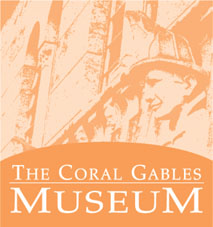 The Coral Gables Museum’s mission is to celebrate, investigate and explore the civic arts of architecture and urban and environmental design, including fostering an appreciation for the history, vision, and cultural landscape of Coral Gables; promoting beauty and planning as well as historic and environmental preservation for a broad audience, including children, families, and community members, as well as local, regional, national and international visitors. The museum optimizes its mission by cultivating effective partnerships, and providing programming that includes exhibitions, collections, educational offerings, lectures, tours, publications and special events. About FIU Theatre FIU Theatre guides students through the discovery of their unique artistic visions and helps them develop the skills to make them a reality. Through a rigorous course of study in the classroom and participation in a diverse mix of productions that address a variety of global perspectives, periods, and styles, students have the opportunity to explore acting, design and construction, play analysis and dramaturgy, history, directing, playwriting and stage management. We present a season of four productions each year that serve as a laboratory for our students to put their learning into practice. In addition, students will have the ability to write, direct and perform in productions including our Student Theatre Lab, New Plays Festival, and a summer Alternative Theatre Festival. Our summer Alternative Theatre Festival includes a development project of a new work by an established playwright, a faculty directed piece, one student directed piece, and may include Alumni showcase and reunion productions. About GableStage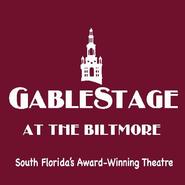 The mission of GableStage is to provide the South Florida community with classical, contemporary and new theatrical productions of artistic excellence. We challenge our multicultural audience with innovative productions that entertain as well as confront today's issues and ideas. By emphasizing nontraditional casting and employing the best of our local creative force, GableStage endeavors to meet the needs of our diverse community. GableStage is committed to the enrichment of the local actor, director, designer and technician by providing the opportunity to achieve artistic acclaim in this region. GableStage believes the future of theatre can be assured only by the development of young audiences. Therefore, our in-house mainstage and in-school touring Educational Programs are major components of our theatre. Furthermore, GableStage welcomes the opportunity to support as many worthy causes as possible through our theatrical production benefits and making the theatre available for use to other cultural and community groups.  In preparation for FIU Theatre's reading of THE HAMPTON YEARS at GableStage as part of the Beyond Swastika and Jim Crow exhibit at the Coral Gables Museum, I connected with actress Makeba Pace, who will be portraying painter, sculptor, and printmaker Elizabeth Catlett, about her career in the theatre and the relevant themes of the play. Click here to learn more about the reading and please enjoy this wonderful interview. 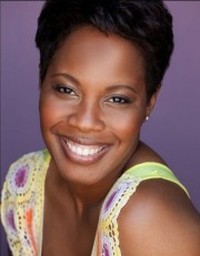 JACQUELINE LAWTON: To begin, why did you decide to get into theater? Was there someone or a particular show that inspired you? MAKEBA PACE: When I was working on my Bachelors the dean at the present time saw me working on something with the African-American Student Union. She suggested I talk to the Theatre Department. I never looked back. JL: Set in Hampton, Virginia in the 1940s, THE HAMPTON YEARS examines the impact of World War II on Jewish immigrants living in the United States and their role in shaping the lives and careers of African American students in the segregated south. Why do you feel this play is relevant to today’s audiences? MP: It is a reminder of war, culture, art and discrimination, and how it hasn’t changed. There is a want for change but, we as a nation is treading slowly. JL: THE HAMPTON YEAR also investigates the various ways in which racism and bigotry negatively impact the arts, academia and military. Where do you feel we are in terms of race relations in the U.S.? MP: Presently there a lot of events that are thrown in our faces as a nation; women’s rights, the Ebola epidemic in Africa and the racism that occurs every day that happens in the U.S. The list goes on. It continues to be misplaced or misunderstood. As a nation, I feel as though we are taking two steps forward and four steps backward. JL: Which character are you playing? What, if anything, do you have in common with this character’s passions, values, intentions or belief system? MP: My character is Elizabeth. I really like her passion and drive. She believes in what she is doing, loves her students and continued to stay realistic of the times and the truth of the world during the 1940’s. I believe our common belief is to do what you love. No matter who sees it, you did it. It is yours and no one can take that away from you. JL: What do you hope audiences walk away thinking about after experiencing this play? MP: “To thine own self be true”. I liked the relationships. Viktor always wanted John to paint his truth his vision. Initially that is what empowered John. In addition, Samella suggests to John you can always find another way to do something. Be true to yourself. JL: What’s next for you as an actor? Where can we follow your work? MP: In December I will be working on Sunset Baby at The Andrews Living Arts. You can follow me on Facebook.  In preparation for FIU Theatre's reading of THE HAMPTON YEARS at GableStage as part of the Beyond Swastika and Jim Crow exhibit at the Coral Gables Museum, I connected with actress Madeleine Escarne, who will be portraying artist, author, and historian Samella Lewis, about her career in the theatre and the relevant themes of the play. Click here to learn more about the reading and please enjoy this wonderful interview. 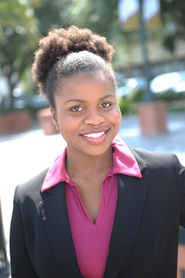 JACQUELINE LAWTON: To begin, why did you decide to get into theater? Was there someone or a particular show that inspired you? MADELEINE ESCARNE: I knew that I had always wanted to be some sort of performer since the age of nine. As a kid, I was an extreme extrovert and always wanted to put on a show for people in the prettiest, and most frilly dress I could find. As I grew older, I became more and more introverted to the point where I could not conceive of being in front of people, but the love it was still brewing inside. It was not until after I had graduated from college and had been working in a corporate office for a couple of years, where I sat at my desk and pondered the meaning of my life. Nothing made sense anymore if I continued to deny this creative and artistic side of me. Later, I saw an announcement in the paper for an audition at a local community theatre, and I said to myself, “it’s now or never.” The play was To Kill a Mockingbird and I was cast in the part of Helen. When I stepped foot on the stage, I knew it was my home. JL: Set in Hampton, Virginia in the 1940s, THE HAMPTON YEARS examines the impact of World War II on Jewish immigrants living in the United States and their role in shaping the lives and careers of African American students in the segregated south. Why do you feel this play is relevant to today’s audiences? ME: Wow, so many of the statements that the characters make are as relevant then as they are now. Samella’s character states “…folks have had guns pulled on them and killed for doing less…” in reference to John’s character having issues with the printer because they did not service ‘negroes’ and I cant help but think of the unrest that has been so prevalent in the news as of late. This play is relevant today, and especially to me being African American, on the importance of empathy from one oppressed culture to another. Elizabeth’s and Samella’s character go back and forth in the comparison of the Jewish culture (and their oppression) to that of African Americans and segregation in the play and Samella’s words (and understanding) ring truer even now. JL: THE HAMPTON YEARS also investigates the various ways in which racism and bigotry negatively impact the arts, academia and military. Where do you feel we are in terms of race relations in the U.S.? ME: There is so much I could say here. Growing up as an 80’s baby, I’ve seen things propel forward exponentially in the right direction but, in my opinion, has nowadays gone in reverse ever so rapidly. I remember turning on the television and watching shows like “The Famous Jett Jackson” and seeing the lead played by an un-stereotypical African American male and address issues such as bigotry and racism. I grew up watching shows such as “A Different World” and seeing issues tackled such as the L.A. Riots and divestment from South African companies that practiced Apartheid. Movies by Spike Lee and John Singleton challenged my young mind to burst from the small box that American culture was determined to hold me in. Two plus decades later, and most of what I see now is fluff. TV and movies have become so homogenous to the point where productions companies have even claimed that ‘people’ are not interested in the African American plight unless their perspective is told from that of a slave or a maid. Just these past few years (the twenty-first century mind you), I’ve been called a nigger, I’ve been followed in stores, I’ve been asked on multiple occasions do I work at the very same store that I am a patron of. I have been one of a hand-full of people (if not the only) who look like me in any organization (or class) that I’m apart of. The list can go on and on for pages and pages and no matter what anyone tries to tell me, racism in these ‘united’ states of America is alive and well and perpetuated even more so through the arts and especially through the media. JL: Which character are you playing? What, if anything, do you have in common with this character’s passions, values, intentions or belief system? ME: I play the character of Samella Sanders Lewis. I have three older brothers and so I’ve had my share of the bias that always happens in the sibling dynamic. I could certainly relate to the scene where Samella finds the letter in Viktor’s office about John having his work displayed at the MOMA and her not even being considered even though her work was just as worthy. I know the experience of having that sinking feeling of possibly being passed over, or not recognized for something because not only am I ‘black’ but I’m a woman as well. Mainly, I can attest to Samella’s passion of making it evident that all she has attained, she has worked extremely hard for and that it was not simply handed to her. JL: What do you hope audiences walk away thinking about after experiencing this play? ME: Consideration; a moment of pause to even want to try to walk a mile in someone else’s shoe. I think it is hard to understand where a person is coming from, the deep seeded issues and beliefs that one carries based on factors that are beyond their control, until a person takes a moment of pause for reflection to want to understand what their experience could have possibly been like. JL: What’s next for you as an actor? Where can we follow your work? ME: Ah, I’m not quite sure. I am currently working on completing my BFA from Florida International University. I just ended a run with FIU in our production of An Ideal Husband by Oscar Wilde. I played the character of Lady Marby. We have auditions for the spring semester coming up and so I’m hopeful about that. Other than that (and any other opportunities that may come up in the interim) you can follow me on facebook @actorMEscarne. Thank you very much for this opportunity! |
My BlogI'm a playwright, dramaturg, and teaching artist. It is here where you'll find my queries and musings on life, theater and the world. My posts advocate for diversity, inclusion, and equity in the American Theatre and updates on my own work. Please enjoy!
Categories
All
Archives
June 2020
Reading List
|
